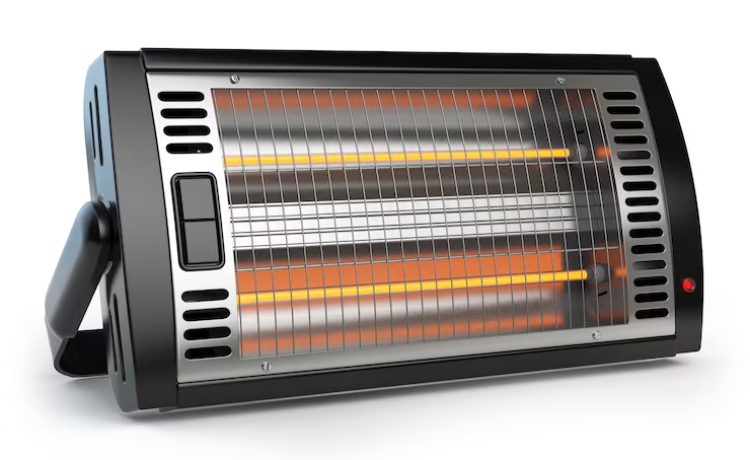Are you tired of your garage being an unusable icebox during the colder months? Whether you use it as a workshop for your projects, a home gym, or simply for storage, a cold garage can be a major inconvenience. A reliable heater garage heater can transform this chilly space into a comfortable and functional area year-round.
Choosing the right heater, however, isn’t as simple as picking the first one you see. The ideal choice depends on your garage’s size, its level of insulation, and how you plan to use the space. A well-chosen heater not only provides consistent warmth but also operates safely and efficiently, saving you money in the long run.
This guide will walk you through everything you need to know. We will explore the different types of heater garage heaters available, explain how to select the right one for your specific needs, and provide essential tips on installation, maintenance, and safety. By the end, you’ll have the confidence to choose a heater that keeps your garage comfortable for years to come.
Understanding the Types of heater garage heaters
The first step is to familiarize yourself with the main categories of heater garage heaters. Each type has its own set of advantages and is suited for different environments and use cases.
Electric heater garage heaters
Electric heaters are a popular and straightforward choice, especially for smaller, well-insulated garages. They work by converting electrical energy into heat, often using a fan to distribute the warm air. Installation is typically as simple as plugging the unit into a suitable outlet.
Their primary benefits are safety and ease of use. Since they don’t burn fuel, there’s no need for ventilation to remove harmful byproducts like carbon monoxide. This makes them a very safe option for enclosed spaces. However, their operating costs can become high if you’re trying to heat a large, poorly insulated area for extended periods. They are best for smaller garages or for those who only need occasional heating.
Propane heater garage heaters
For those needing to heat larger areas quickly, propane heaters offer a powerful and portable solution. These units generate a significant amount of heat, making them effective even in bigger, draftier garages. Their portability allows you to move them wherever heat is needed most.
The trade-off for this power is the need for proper ventilation. Propane combustion produces carbon monoxide, so ensuring a steady supply of fresh air is critical for safe operation. You will also need to have propane tanks on hand and be prepared to refill them. This makes them an excellent choice for larger spaces or as a temporary heating source during a project.
Natural Gas heater garage heaters
If you plan on using your garage frequently throughout the winter, a natural gas heater can be a very economical long-term solution. Once installed, they tap directly into your home’s natural gas supply, providing a constant source of heat without the need for refilling tanks. Operating costs are generally lower than both electric and propane options.
The main consideration for natural gas heaters is the installation. It requires a professional to run a gas line to your garage, which involves an upfront cost. Because of this initial investment and their powerful output, they are best suited for larger garages that require consistent, regular heating.
Infrared heater garage heaters
Infrared heaters operate on a different principle than the others. Instead of heating the surrounding air, they emit infrared radiation that directly warms objects and people in their path. This process is similar to how the sun warms you on a cool day. The result is instant, targeted warmth.
This direct heating method is highly energy-efficient because no energy is wasted heating the entire volume of air in the garage. They are silent and require no ventilation. However, their effective range is limited, and they won’t raise the overall ambient temperature of the garage as much as a convection heater would. This makes them ideal for spot heating specific work areas.
How to Choose the Right heater garage heater
With a clear understanding of the types, you can now focus on the specific factors that will determine the best heater for your garage.
Consider Your Garage Size
The size of your garage is the most critical factor in determining the heating power you need. A common mistake is buying a heater that is either too weak, leaving you cold, or too powerful, wasting energy and money. You can perform a simple heater garage heater size calculation to find the right fit.
First, measure the length and width of your garage to find its square footage. A general rule of thumb for a well-insulated space is to have about 10 watts of heating power per square foot. For a poorly insulated garage, you might need 25-30 watts per square foot. Heaters are often rated in British Thermal Units (BTUs). To convert watts to BTUs, remember that 1 watt is approximately 3.41 BTUs. For example, a standard 2-car garage of 400 square feet would need at least a 4,000-watt (or roughly 13,640 BTU) heater if it’s well-insulated.
Assess Insulation and Ventilation
The level of garage insulation for heating directly impacts how well any heater will perform. An uninsulated garage with concrete walls and a metal door will lose heat very quickly, forcing your heater to work constantly. Adding insulation to walls, ceilings, and the garage door can dramatically improve heat retention and reduce your energy costs.
Ventilation is equally important, especially when using propane or natural gas heaters. These units require a fresh air supply to operate safely and expel combustion byproducts. Always follow the manufacturer’s guidelines for ventilation to prevent the dangerous buildup of carbon monoxide.
Think About Your Frequency of Use
How often will you be using the heater? Your answer will guide you toward the most practical option. If you only need to warm up the space for a few hours on a weekend, a portable propane or electric heater might be the best heater for occasional garage use. These offer flexibility without the commitment of a permanent installation.
Conversely, if your garage serves as a daily workshop or studio, investing in a permanently installed natural gas or a high-capacity electric heater will likely be more convenient and cost-effective over time.
Installing and Maintaining Your heater garage heater
Proper installation and regular maintenance are key to ensuring your heater operates safely and efficiently for years.
Installation Tips and Requirements
The installation process varies significantly between heater types. An electric heater often requires nothing more than a dedicated circuit and a proper outlet. Infrared heaters are also straightforward, needing only to be mounted securely in a location that optimizes their heating path.
Gas heaters, however, demand more care. It is strongly recommended that a qualified professional handle the installation of a natural gas heater to ensure the gas line is connected safely and securely. Both natural gas and propane heaters must be vented correctly according to local building codes and manufacturer specifications.
Regular Maintenance
Following a few heater garage heater maintenance tips can extend the life of your unit and prevent problems. It’s important to keep the heater clean from dust and debris, which can accumulate and become a fire hazard or reduce efficiency. For forced-air heaters, inspect and clean the filters regularly. For gas heaters, periodically check that all connections are secure and there are no leaks. Always ensure that any vents or air intakes are clear and unobstructed.
Common Issues and Troubleshooting
Even with good maintenance, you might encounter heater garage heater problems. If a heater won’t turn on, first check the power source or fuel supply. Uneven heating could be a result of poor placement or blocked airflow. If you notice a sudden spike in energy costs, it might be due to failing insulation or a heater that needs servicing. Always consult your owner’s manual for specific troubleshooting steps and never attempt repairs on a gas heater unless you are qualified to do so.
Safety and Efficiency Considerations
When selecting and using a heater garage heater, safety and efficiency should always be top priorities.
Safety Features to Look For
Modern heaters come with a range of safe heater garage heater features. Look for models with an automatic shut-off that activates if the unit overheats. A tip-over switch is another crucial feature for portable heaters, cutting power if the unit is accidentally knocked over. For gas heaters, an oxygen depletion sensor (ODS) is a vital feature that shuts the unit off if oxygen levels in the room drop too low.
Energy Efficiency
Comparing energy-efficient heater garage heaters can lead to significant savings. Infrared heaters are often the most efficient for spot heating, as they don’t waste energy heating the air. For heating the entire space, a properly sized natural gas heater is typically the most cost-effective option for long-term use. To further manage energy consumption, use a thermostat to maintain a consistent temperature and a timer to ensure the heater only runs when you need it.
You would also like: “craftsman garage door opener“
Find Your Perfect heater garage heater
Choosing the right heater garage heater involves balancing your heating needs with factors like garage size, insulation, and budget. By understanding the different types of heaters and how to select the right size, you can create a comfortable and functional space for any activity.
Remember to prioritize safety features and follow all installation and maintenance guidelines. A well-chosen and properly maintained heater will provide reliable warmth for many winters to come.
Ready to find the perfect heater for your garage? Explore our selection of top-rated heater garage heaters today and take the first step toward a warmer, more comfortable space!
Frequently Asked Questions (FAQ)
What size heater garage heater do I need?
The size of the heater you need depends on your garage’s square footage, ceiling height, and insulation level. As a general guideline, a well-insulated garage needs about 10 watts (or 34 BTUs) of heating power per square foot. For a poorly insulated garage, you may need up to 30 watts (or 102 BTUs) per square foot. A standard two-car garage (around 400-500 sq. ft.) would typically require a heater between 4,000 to 5,000 watts (13,600 to 17,000 BTUs) for effective heating.
Can I use a heater in a detached garage?
Yes, you can use a heater in a detached garage. However, you must ensure the space is properly prepared. If using a fuel-burning heater (propane or natural gas), adequate ventilation is absolutely critical to prevent carbon monoxide buildup. Electric heaters are a safer option for poorly ventilated spaces. Additionally, consider the level of insulation in your detached garage, as an uninsulated structure will struggle to retain heat, making any heater less effective and more expensive to run.
Are propane heaters safe for garages?
Propane heaters can be used safely in garages, but only if strict safety precautions are followed. The primary risk is carbon monoxide poisoning, so you must ensure there is sufficient ventilation, such as an open window or door, to allow fresh air to circulate. Never use a propane heater designed for outdoor use inside an enclosed garage. Look for models with built-in safety features like an oxygen depletion sensor (ODS) and an automatic tip-over shut-off.
How much does it cost to run a heater garage heater?
The cost to run a heater garage heater varies widely based on the heater type, local utility rates, and usage frequency.
- Electric Heaters: The cost is calculated by multiplying the heater’s wattage by your electricity rate (in kWh). A 5,000-watt heater running for an hour will consume 5 kWh of electricity.
- Propane Heaters: Costs depend on the price of propane. A 20-pound propane tank contains about 430,000 BTUs. A 40,000 BTU/hour heater would run for approximately 10.75 hours on a full tank.
- Natural Gas Heaters: This is often the cheapest option for long-term use. Costs are based on your natural gas rate per therm (1 therm = 100,000 BTUs).
To minimize costs, ensure your garage is well-insulated and use a thermostat to regulate the temperature.












